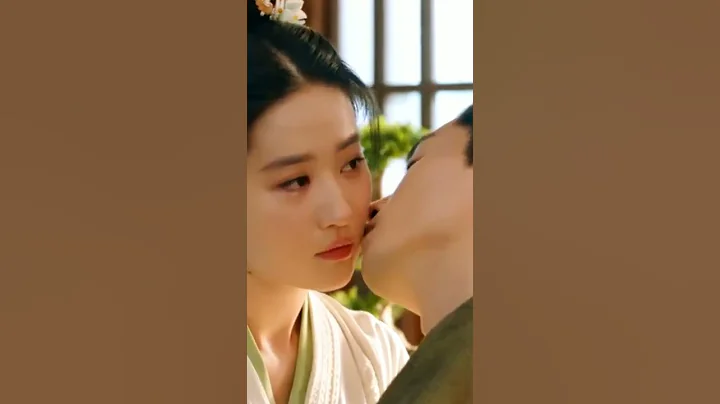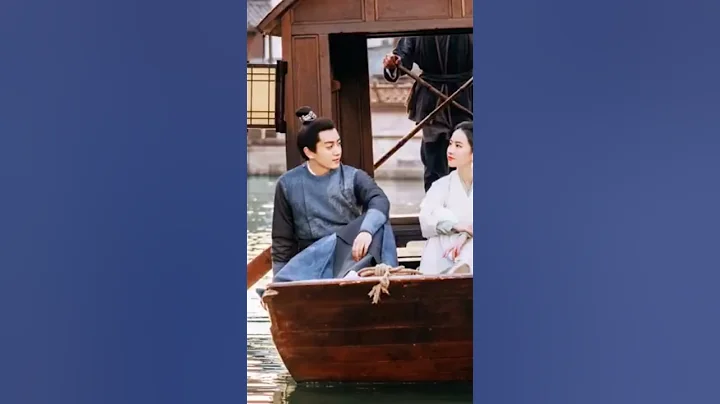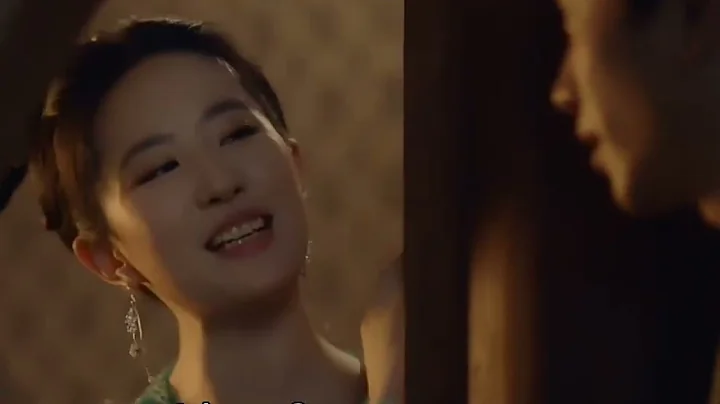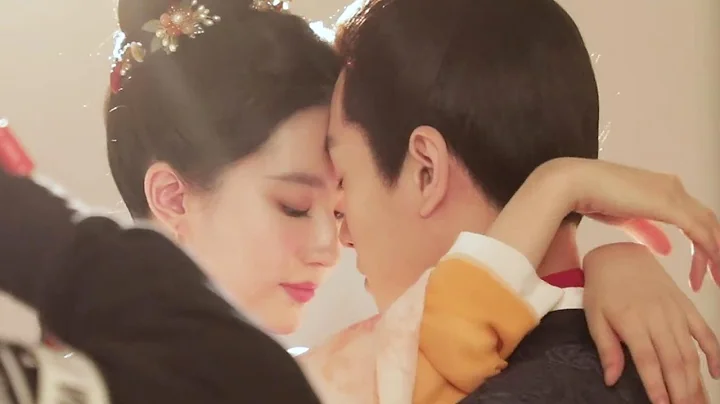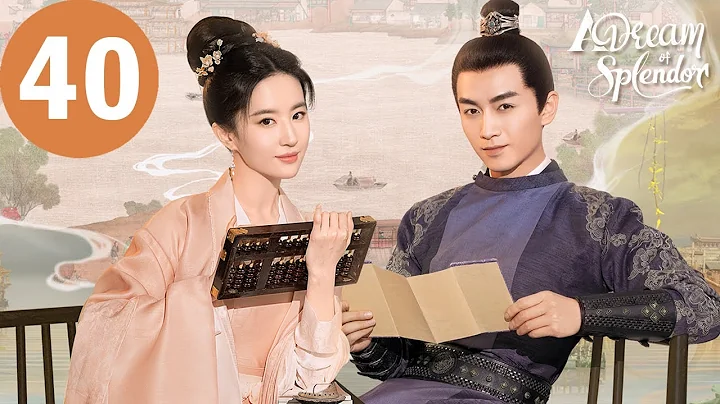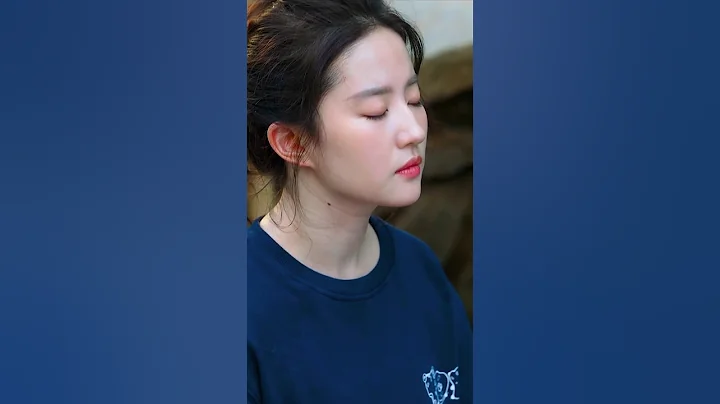
The pictures in this version are from the Internet (except for the signature)
●Bai Xiaoyong
■Editor's note
The costume idol drama " Meng Hua Lu " starring Liu Yifei and Chen Xiao has attracted attention with its eye-catching roles since its launch. The image, delicate plot, and excellent production continue to attract attention and heated discussions. The Douban score was once as high as 8.8 points. The reproduction of secular scenes such as food, tea ceremony, music, and humanities during the Northern Song Dynasty, as well as the implicit "Song Rhyme" style in the play, have become a hot topic among the audience, winning traffic and popularity for "Menghualu" Word of mouth has played a driving role that cannot be ignored. From the dance poetry drama " Only This Green " that hit the screen to the hit "Menghualu", what is the charm of "Song Yun", which is known for its exquisiteness and elegance, and why has it frequently become a literary hit? Bai Xiaoyong, a literary and historical scholar and associate professor of Zhejiang Gongshang University , wrote an article and commented.
On the other hand, Xinghai Conservatory of Music and Guangzhou Grand Theater jointly produced the original opera " Xinghai Xinghai ", which recently appeared on the stage of Guangzhou Grand Theater. The opera tells the story of a group of young students from Xinghai Conservatory of Music rehearsing " Yellow River Cantata" " experience, in the form of "interweaving of time and space", reproduces the footprints of Xian Xinghai's life and the legacy of the "Xinghai Spirit". Drama critic Muzi analyzed and summarized the artistic features of the play in his review, so stay tuned.
Inadvertently, another "national trend" drama has become very popular. This is the recently popular "Menghua Lu". "Menghualu" is adapted from Guan Hanqing " Save the Fengchen". The play focuses on the experiences of three Jiangnan women, Zhao Paner, Song Yinzhang, and Sun Sanniang. It tells the story of the three people working together to run a Jiangnan school in Bianliang, Tokyo. The story of Yong'an Restaurant, a unique tea house and restaurant, finally reaching the pinnacle of life. Of course, compared to the 40-episode "Meng Hua Lu", Guan Hanqing's "Saving Feng Chen" can at best be regarded as an introduction. After all, the storyline is much richer than the original work, and the characters and images of the main characters Zhao Pan'er and others are different from the original Guan Hanqing. The character settings are also very different. The popularity of this drama is certainly related to the screenwriter's carefully conceived storyline and the actors' superb performances, but what cannot be ignored is that the drama's presentation of rich life scenes in Bianliang and Qiantang, Tokyo, has greatly enhanced its ability to attract fans. From clothing, Cuju to drinking tea and food, the beauty of Song Dynasty flowing all over the screen has successfully pushed "Menghualu" to the top of the screen.
Anyone familiar with Song history knows that the Song Dynasty was the forerunner of a civilized society. With the stability and prosperity of society, the commodity economy of the Song Dynasty was unprecedentedly prosperous, overseas trade was developed, and the improvement of social productivity greatly promoted the increase of social wealth. Under this situation, people in the Song Dynasty, from scholar-bureaucrats to common people, generally pursued the enjoyment of life and formed a life aesthetics characterized by elegance. Scholar Mr. Xu Jijun once pointed out: "The rhyme of the Song Dynasty is the unique charm of the Song Dynasty in Chinese history." This unique charm spread in every aspect of the life of the Song people. "Menghualu" cleverly presents this unique historical charm in the lives of Song people through careful arrangements, making it one of the biggest highlights of the play.
One of them is the exquisite costumes of the characters in the play. The Song people's emphasis on life was reflected in their clothing, which was their pursuit of exquisiteness. Therefore, the exquisiteness of clothing in the Song Dynasty was also superior to that of previous generations. For example, the widespread use of and has made women's clothing change from the bold and unrestrained style of in the Tang Dynasty to become reserved and elegant, becoming one of the favorite styles of Hanfu lovers today. The crew of "Meng Hua Lu" obviously put a lot of thought into the costumes of the characters. The costumes of Zhao Pan'er, Gu Qianfan, Song Yinzhang and others in the play not only conform to the styles of the Song Dynasty, but also well present the charm of the Song Dynasty costumes. Their flowing clothes make the three sisters in the play as gentle and moving as if they had stepped out of a Song Dynasty painting. .
The protagonist Zhao Paner was born in a tea shop, so tea art is naturally the focus of the play. According to records in ancient books and documents such as " Tokyo Menghualu " and " Mengliang Lu ", teahouses in the Song Dynasty blossomed everywhere in Kaifeng and Hangzhou."Burning incense, ordering tea, hanging pictures and arranging flowers" have also become the daily needs of the common people. As the trend became more and more popular, even teahouses and restaurants paid great attention to the elegance of the environment. According to "Mengliang Lu", Hangzhou tea shops "arrange flowers of the four seasons, hang paintings of famous people, decorate the store, and sell strange teas and soups in the four seasons". ". In summer, they sell snow-soaked plum blossom wine and play "Plum Blossom Yin" to attract customers. Of course, the core technology of the tea house is tea ordering, which is also called tea sharing. In the Song Dynasty, tea sharing was very ceremonial, with numerous procedures and exquisite utensils, and each utensil had an elegant name. First put the tea balls on the tea baking basket (Wei Honglu) and bake them over charcoal fire, then use the wooden mortar (Wudai system), tea grinder (Jinfa Cao), stone mill (stone transfer) to grind them into powder, and then use brown tea balls to grind them into powder. Brush (Zong Zhi), sweep into the fine silk Luo (Luo Privy) and sift carefully, then use a gourd scoop (Hu Yuanwai) to measure the tea powder, place it in a cup washed with boiling water (with the rabbit hair cup as the top, call it "Tao Wenbao" "), place the tea cup on the saucer (Diaoqi Secret Pavilion), pour a little boiling water in the pot (soup point), and beat it with the tea whisk (Assistant Master Zhu, or "Tea Stirrer") Beat until it becomes a paste, then continuously add water, use a tea spoon to stir and click, and finally the tea surface will show various patterns. Today's coffee latte art, finally use a tea towel (official side) to wipe the spilled juice. Tao Gu said in "Qing Yi Lu" that "in modern times, there are people who move daggers into the soup and use special tricks to make the water patterns and water veins become objects. The animals, insects, fish, flowers and plants are all delicate and picturesque." This is what Tao Gu means. Lu You has a poem that goes: "The short paper is slanting and I am making grass, and I am playing with the thin breasts of the clear window to share the tea." Ordering tea was an elegant thing for the people of the Song Dynasty, and all the scholars and common people enjoyed it. According to " Tea Records " written by Cai Xiang, tea sets are also very particular. "The tea grinder is made of silver or iron." Gold, copper or stone are not suitable. "It is better to use extremely fine tea luo, and the luo bottom should be painted with silk from the Goose River in the Eastern Sichuan River." Because the tea soup is milky white, "it is better to use a black cup. The ones made in Jian'an are cyanotic and have grains like rabbit hairs. The base is slightly thick. It is most suitable to use it when it is hot and difficult to cool down for a long time." In the play, Zhao Pan'er, played by Liu Yifei, displays her tea-ordering skills in a natural and sophisticated manner. Whether she is grinding tea with the "Jin Fa Cao" or adding water with the "Tang Dian", she vividly reproduces the tea-ordering skills of the Song Dynasty people. Of course there are regrets, but the most crucial step of ordering tea, the process of using "Assistant Master Zhu" to hit the soup noodles to make the tea soup noodles look like flowers, is too simple and the tea soup noodles are just a little bit of water, which cannot fully satisfy the audience's desire to watch. Even so, it is enough to give people a glimpse into the exquisite life of the Song Dynasty people, and to stir up the minds of the audience, especially the young students. According to the author's understanding, "reading "Menghualu" and learning some tea" has quietly become popular among some college students. I believe that with the popularity of "Meng Hua Lu", it will bring new development opportunities to the ancient tea-making skills, including celadon tea sets and rabbit cups.
Relating to the popular Chinese dance "Prayer", "Tang Palace Night Banquet", "Only This Green", etc., it can be seen that the popularity of "Meng Hua Lu" is not accidental. The biggest difference between this drama and previous costume dramas is that The elegance of the Song Dynasty is uniquely integrated into the unfolding of the storyline, allowing the audience to feel the beauty of Song Dynasty up close while appreciating the story, which enhances the humanistic content of the play. The reason why the beauty of Song Dynasty can impress today's young people is that it is exquisite and elegant without losing its smoky atmosphere. It represents the common people's pursuit of a better life and worldly happiness, so it is so beautiful that it is endearing to people today. But there is no sense of alienation. Not only that, the soothing and leisurely slow pace of life in the Song Dynasty can be regarded as a kind of spiritual massage for young people living under today's fast pace, high efficiency and heavy pressure. It has a very good healing function and allows them to experience After all the dissatisfaction, I can still feel the beauty of life and the comfort that "the world is still worth it". The play once again proves that literary and artistic products rooted in excellent traditional culture will always have a place in the hearts of the younger generation. How to wipe away the dust of history and make those old treasures shine brightly again through creative transformation and innovative development is an important topic worthy of long-term thinking and exploration by literary and art workers.
(The author is an associate professor and master's tutor at Zhejiang Gongshang University, and a researcher at Zhejiang Cultural Industry Innovation and Development Research Institute)
